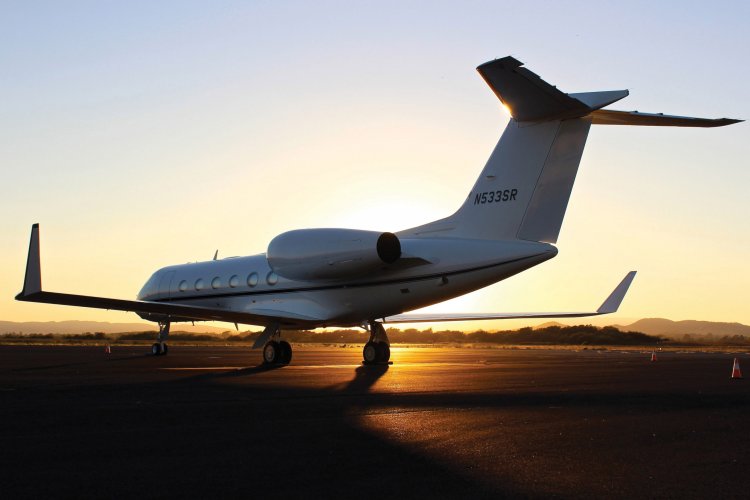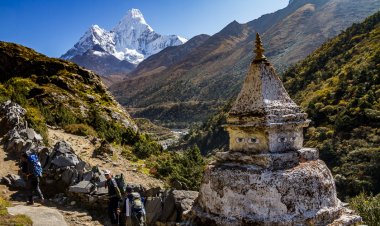Scope of Hotel (Hospitality) Management in Nepal
Explore the opportunities and prospects of Hotel Management in Nepal. Learn about the demand for skilled professionals in the hospitality industry and the potential for growth.

Hotel management refers to an area of study that covers a wide range of topics concerned with the operational aspects of the business. Hotel management is all about managing the different departments and areas of the hotel with the help of skilled and qualified manpower and a positive attitude while providing service to generate profit by satisfying guests. Hotel management is the management of different areas or sectors inside or outside the hotel premises that bring in good business and thereby allow the hotel to serve its guests at their best by ensuring a high level of satisfaction.
The Oxford Dictionary defines hospitality as "the reception and entertainment of guests, visitors, or strangers with liberty and goodwill." In Nepali culture, guests are treated like God, as expressed in the Sanskrit slogan "Atithi Devo Bhava." The hospitality sector currently occupies approximately 9.6% of the global sector, and the UNWTO intends to increase the sector's economic portion from tourism and hospitality to 10%.
Hotel management in Nepal is a growing field due to the increase in tourism in the country. Managers in Nepal face unique challenges such as language barriers and cultural differences, as well as the impact of political instability. However, there are also many opportunities for hotel management professionals in Nepal, as the government is investing in the tourism industry and new hotels are being developed. The hotel management field in Nepal includes various aspects such as front office management, housekeeping, food, and beverage service, kitchen management, and more. There are different types of hotels in Nepal, such as luxury, budget, and boutique hotels, and job opportunities in each. The future of hotel management in Nepal looks promising with an increasing number of tourists visiting the country.
The tourism industry in Nepal is currently in a state of growth. The number of tourists visiting Nepal has been increasing in recent years, with a steady rise in both domestic and international visitors. According to the Nepal Tourism Board, the country welcomed 1.4 million foreign tourists in 2020, and the number of visitors is expected to increase in the coming years.
The Nepalese government has been promoting tourism as a major economic driver and has implemented various initiatives to attract tourists to the country. These include the development of new infrastructure, such as airports and roads, as well as the promotion of adventure tourism, eco-tourism, and cultural tourism. The government has also been focusing on diversifying the tourism product in Nepal to attract a wider range of tourists.
The COVID-19 pandemic has affected the tourism industry in Nepal, as travel restrictions and border closures have limited the number of tourists visiting the country. However, the country has started to gradually open up for tourism, and the industry is slowly recovering. The tourism industry in Nepal is a significant contributor to the country's economy, providing employment opportunities and income for local communities. The industry is expected to continue to grow in the future, providing opportunities for the hotel management sector as well.
The growth potential for the hotel sector in Nepal is positive due to the increasing number of tourists visiting the country. The Nepalese government is investing in the tourism industry and promoting the country as a tourist destination, which is expected to drive the growth of the hotel sector. The development of new hotels and resorts to meet the demand is also expected to contribute to the growth of the hotel sector. Additionally, the diversification of the tourism product in Nepal is also expected to attract a wider range of tourists, which would lead to more demand for hotel accommodation.
-
Front Office Management:
This includes managing the reception, reservations, and guest services. As the front office is the first point of contact for guests, managers in this area must have strong customer service skills and can provide a welcoming and efficient experience for guests. The front office is responsible for guest satisfaction and coordinates with other departments of the hotel for smooth functioning. -
Food and Beverage Service:
This includes managing the restaurant, bar, and room service operations. It includes menu planning, kitchen management, and staff training. This department plays a vital role in delivering accurate food and beverage service by placing orders from hot or cold plates in the kitchen to the guest table in a proper hospitality manner. Managers in this area should have a strong understanding of food and beverage trends as well as experience managing a busy restaurant or bar. -
Housekeeping:
This includes managing the cleaning, laundry, and maintenance of the hotel's guest rooms and public areas. Housekeeping closely coordinates with the front office and the maintenance department of the hotel for the cleaning and sale of guestrooms, as well as all kinds of repair and maintenance work. Managers in this area should have experience managing a team of housekeeping staff and be familiar with the latest cleaning techniques and technologies. -
Sales and Marketing:
This includes promoting the hotel and its services to potential guests as well as developing and implementing marketing strategies to increase occupancy and revenue. They are responsible for implementing marketing strategies as well as building relationships with travel agencies and tour operators. Managers in this area should have a strong understanding of the tourism industry, as well as experience in sales and marketing. -
Human Resource Management:
This includes recruiting, training, and managing hotel staff. This department also has an agreement with the employee in terms of salary, wages, bonuses, and leave, as well as the rules and regulations of the hotel. Managers in this area should have experience managing a diverse team of employees and be familiar with labor laws and regulations. -
Financial Management:
This includes managing the hotel's budget, financial reporting, and accounting. Managers in this area should have experience in financial management and be familiar with accounting and budgeting. Maintenance and Engineering: This includes managing the maintenance and upkeep of the hotel's facilities and equipment. Managers in this area should have experience maintaining and repairing hotel equipment and facilities and be familiar with health and safety regulations. -
Event management:
event management has cropped up as one of the most profitable and best career opportunities and is also catching on as a bright career option. It is all about maintaining a focused and professional event for a certain target audience. It includes planning and coordinating events such as conferences, conventions, colloquia, workshops, seminars, symposiums, and so on.
Overall, hotel management professionals need to have a broad understanding of the various areas of hotel management and be able to adapt to the unique challenges and opportunities of the Nepalese market.
The Nepalese government has been investing in the tourism industry as a major economic driver. The government has implemented various initiatives to attract tourists to the country, such as the development of new infrastructure such as airports and roads, as well as the promotion of adventure tourism, eco-tourism, and cultural tourism. The government has also been investing in promoting Nepal as a tourist destination internationally. The Nepal Tourism Board, the government body responsible for promoting tourism in Nepal, has been participating in various international travel fairs and exhibitions to attract more tourists to the country. The government has also been providing financial and non-financial incentives to encourage private-sector investment in the tourism industry. For example, the government has been offering tax exemptions, subsidies, and soft loans to the hotel and tourism industries. Additionally, the government has been focusing on improving the overall tourism experience by improving the quality of services and infrastructure, such as by developing new trekking routes, promoting local festivals and culture, and promoting responsible tourism. The government has also been implementing policies to ensure the sustainable development of tourism in the country, such as promoting eco-tourism, preserving cultural heritage and biodiversity, and protecting the rights of local communities.
What's Your Reaction?




































































































